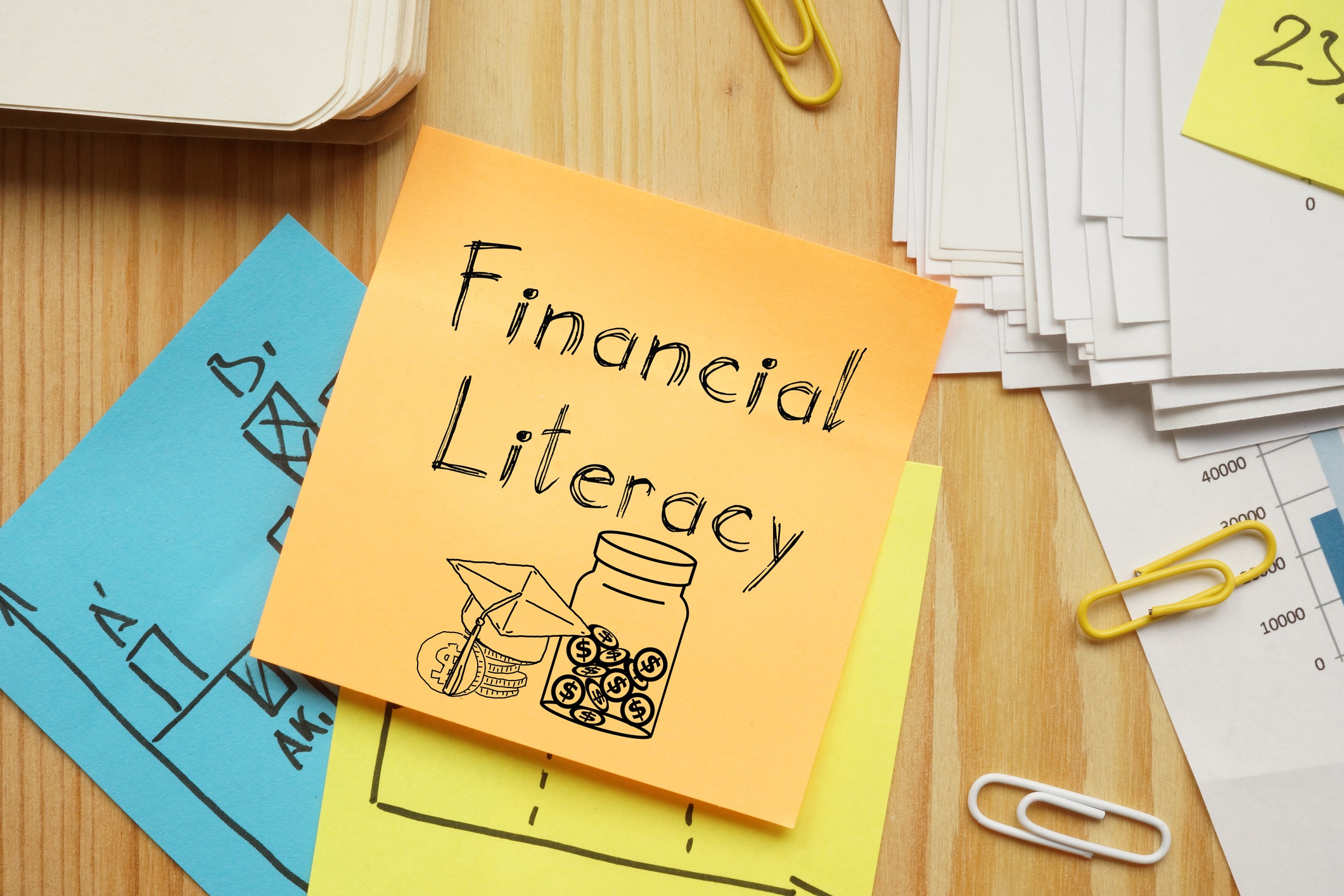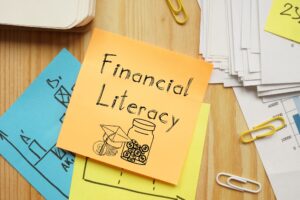The Impact of Financial Literacy

When it comes to financial literacy, there are a few sentiments that society generally agrees upon:
- Money and finances are an essential part of our modern lives.
- The United States has a glaring gap in financial education for both children and adults.
Without a formal structure to provide society with financial literacy education, the responsibility to empower people with the knowledge to make financially responsible decisions lies with people like us – the Yeske Buie team and community.
Let’s use this space to explore…
- The Importance of Financial Literacy
- Actionable Steps to Improve Your Financial Literacy
- Financial Literacy Resources
The Importance of Financial Literacy
Let’s begin with a definition: financial literacy is the ability to understand and effectively use various financial skills. Key areas that determine an individual’s level of financial literacy include their ability to understand the basics of budgeting, saving, investing, debt management, and financial safety.
A study conducted by the FDIC sought to measure the impact of their structured Money Smart program. Just 6 – 12 months after completing the program, participants reported the following:

- Over one-third had opened a savings account, and nearly 40% reported that they saved regularly.
- Over 50% followed through on their goal of saving to a retirement account.
- A large majority (61%) started using a budget or spending plan, and those who were already using a budget were better able to follow it.
- Bill paying practices, credit card practices, use of direct deposit, and comparison shopping for services all increased and improved.
These findings, along with our own personal and professional experiences, help to assert that to achieve financial success, knowledge is key.
Actionable Steps to Improve Your Financial Literacy
So, what steps can you take to improve your financial literacy and achieve financial well-being? Here’s a few places to start.
Step 1: Learn How to Budget
The first and most important step is to come up with a budget to better understand how you are spending your money. With a budget, you can more easily identify if you are living within your means or overspending, and you can determine which areas of spending you can decrease. There are a number of cash flow tracking websites and apps that can help you establish your budget.
Step 2: Get Curious About Your Credit Score
Understanding credit scores, specifically how they are calculated and how to build a high credit score, is essential. Check out this piece and this one to learn more about how to read your credit score. As a basic explanation, a low score indicates that an individual is a credit risk and is likely not to pay their credit bills on time. Higher credit scores can create opportunities for one to access different financial instruments such as a mortgage or the ability to rent a home.
Step 3: Build an Emergency Fund
Building an emergency fund that covers about 3 – 6 months of expenses is a general, financial rule of thumb. The purpose of the emergency fund is to keep an individual from being thrown off track when inevitable and tough financial events happen. Many people don’t anticipate unexpected risks and suffer as a result.
Step 4: Prioritize Debt Management for Your Loans
It’s important to understand the details of any loans you may have – your monthly principal and interest payment, your interest rate, how much interest you will pay over the life of the loan, etc. One strategy to start tackling loans is to list the interest rates from highest to lowest and prioritize paying off those with the highest rates. Another strategy is to pay off your smallest debt first, and then focus on paying down the next loan. This helps to create momentum and stay motivated until all debt has been paid off.
Step 5: Help Your Future-Self
We are often asked, “when is a good time to start saving for retirement?” and the answer is… now! It’s never too late, or too early, to save for retirement. A good rule of thumb is to put 10 – 15% of your income towards retirement accounts and savings.
Step 6: Invest Confidently
In a world where there have been hot investment trends like cryptocurrencies and the GameStop frenzy, the need for financial literacy continues to grow. Unfortunately, much of what passes for investment advice has little connection to this science. Our policy when it comes to investing is simple: no B.S., no baby talk. When we make recommendations, it’s because we believe there’s a sound theoretical and practical foundation for success. At the end of the day, success in investing is more about discipline than it is about beating the system.
Step 7: Talk to a CERTIFIED FINANCIAL PLANNERTM
There is no doubt that it can be overwhelming to be solely responsible for all of these financial decisions. The good news is, you don’t have to do it alone! Meeting with a CERTIFIED FINANCIAL PLANNERTM can have a great impact on your journey to financial success, as we are specifically trained to review, monitor, and manage all of the moving pieces of your financial life and to help you see the big picture as to what things look like now and what steps you can take to accomplish your financial goals. Please don’t hesitate to connect with us!
Financial Literacy Resources
Yeske Buie has a financial literacy program for youth that includes educational tools on the topics of saving, spending, donating, and investing. The program has different difficulty levels from ages 3 to 18 and it is a privilege to be able to share these tools with you and your loved ones. We are also more than happy to meet with any of your family members looking for financial advice or to improve their financial literacy. Please let us know if there’s anyone you think would be interested in connecting with us!






